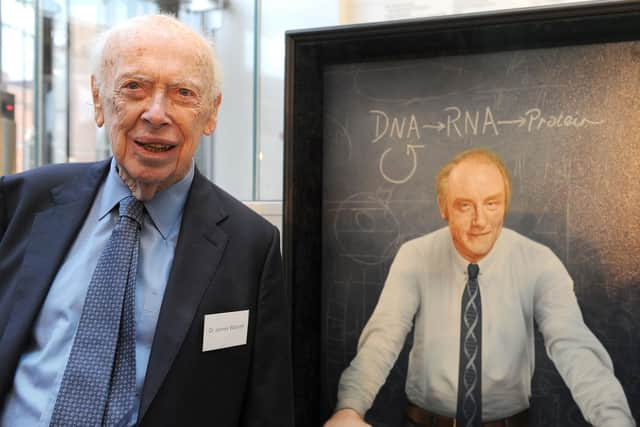James Watson Hall in Portsmouth to be renamed after Rosalind Franklin following DNA-founding scientist’s ‘abhorrent' remarks on race


James Watson Hall in White Swan Road, off Guildhall Walk, is expected to be renamed in the coming weeks to Rosalind Franklin, another co-founder of the structure of DNA.
American molecular biologist Dr Watson, who is now 90, was stripped of honours by a US laboratory last month after he said in a recent documentary there was a ‘difference on the average between blacks and whites on IQ tests’ because of genetics.
Advertisement
Hide AdAdvertisement
Hide AdThe comment prompted backlash from students living in James Watson Hall, who called for the building's name to be changed.


After weeks of discussions it has tonight been announced the university and Unite Students, which owns the city centre block, are looking to ‘formalise a joint decision’ soon.
A University of Portsmouth spokesman said: ‘The University of Portsmouth vice chancellor Professor Graham Galbraith has written to Unite Students, which owns James Watson Hall, recommending changing the name of the hall.
‘Unite are supportive of the suggestion that the name be changed to Rosalind Franklin to recognise her scientific contribution to the discovery of DNA, which has in the past been less well recognised.
Advertisement
Hide AdAdvertisement
Hide Ad‘We will work together with Unite to formalise our joint decision in the coming weeks and aim to have the change in place by the start of the new academic year.’


Dr Watson said in the January 2 documentary American Masters: Decoding Watson his views have ‘not changed at all’ since 2007, when he said he was ‘inherently gloomy about the prospect of Africa’ – claiming tests had shown people on the continent’s intelligence was ‘not really’ the same as ‘ours’.
Now the scientist will not only see his name removed from James Watson Hall, but he looks set to lose his 1997 honorary degree from the University of Portsmouth – as Prof Galbraith takes the decision to the university’s academic council for ratification in March.
A university spokesman branded the scientist's comments ‘abhorrent’ last month – while a spokeswoman for Unite Students said they were ‘wholly unacceptable’.
Advertisement
Hide AdAdvertisement
Hide AdDr Watson became the first living Nobel Prize winner to sell his medal in 2014, after the scientific community united against his comments.
Who is Rosalind Franklin?
Born July 25, 1920, Rosalind Franklin’s contribution to the co-founding of DNA was largely recognised posthumously – after she died of ovarian cancer in 1958, aged 37.
The British scientist’s X-ray diffraction images during her time at King’s College London led to the discovery of DNA’s double-helix structure by Dr Watson, Francis Crick and Maurice Wilkins four years after she died.
The latter trio shared the Nobel Prize in Physiology or Medicine for the feat in 1962, but the Nobel Committee did not add Franklin’s name to the list, because she was dead.